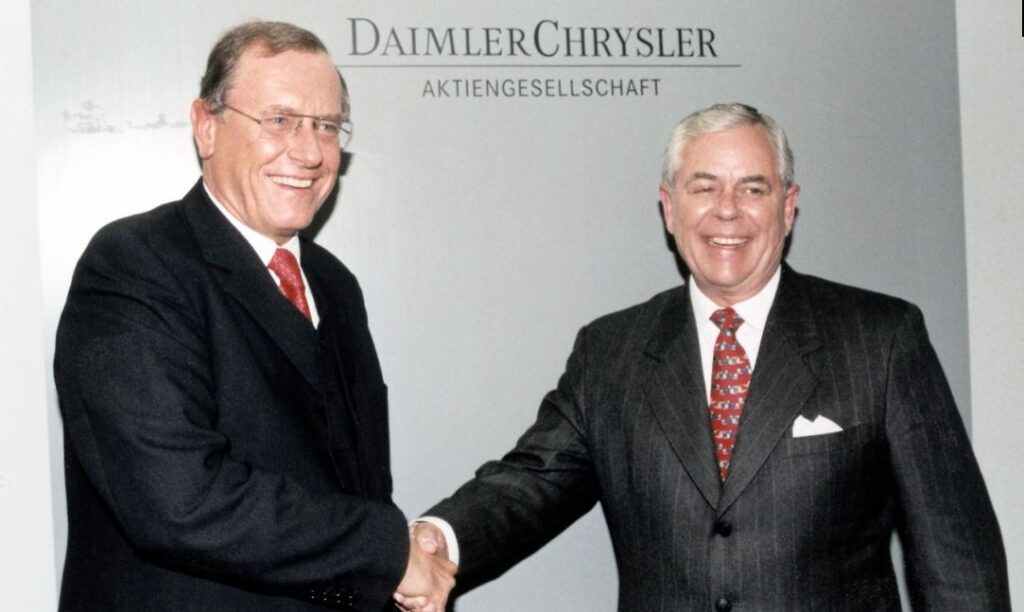MBA Assignment – Clash of Two Cultures: The Daimler-Benz Chrysler Merger (2004)
Daimler-Benz Chrysler Merger MBA Assignment – Change is a pervasive influence. We are all subject to continual change of one form or another. Change is an inescapable part of both social and organisational life. Managers can initiate organisational change deliberately, it can evolve slowly within a department, it can be imposed by specific changes in policy or procedures or it can arise through external pressures. Change can affect all aspects of the operation and functioning of an organisation. Today’s organisations are facing both external and internal forces that make change inevitable. External forces such as new workforce demographics, changing expectations about quality, productivity, customer satisfaction and new technologies are dramatically affecting the operating environment of organisations worldwide, notably in the automotive industry.
Internally, financial constraints, the requirement to do more with less, cross-functional teams, mergers and acquisitions, and empowered workers all affect organisations abilities to compete in the global marketplace. Change and transition lead to two different outcomes, change is more physical this is evident in a merger where new factories, offices, stock and workers are acquired, on the other hand, transition is more psychological this affects the behaviour of an individual or a mass workforce. Change can be objective where a person or a group of people are trying to achieve set goals this is evident in the case study. On the other hand, transition is more subjective.
Change is more absolute, it can be categorised as complete or finite this means there is a start and an end to the perceived change, on the other hand, transition is less finite and more open ended. The project illustrates differences between change and transition. It is clear to see that transition is ongoing, moving from a present fixed state to a future state, transition can be achieved through discovery. Transition needs acceptance and understanding to progress from one state to the next.
1: Introduction
Change versus transition
Transition model
2: DaimlerChrysler Background
3: Rationale behind the change
Globalisation
Major changes in the global automotive industry
Porter’s Five-force analysis
Five-force analysis for the
Global motor industry
Bargaining Power of the Buyers
Bargaining power of suppliers
Threat of new entrants
Pressure from substitutes
4: Description of the process
Key dates
The ‘hard/soft’ approach to change management
The ‘hard/soft’ approach to change management
5: Roles and perspectives of the key players
6: Critical analysis and evaluation
Lewin’s Forcefield analysis
Communication
Alignment
Cultural fit
Workforce
Governance
Lewin’s change model
The management of change (Lewin)
Unfreezing
Moving
Refreezing
Structure
Culture
Cultural differences in values
Strategy
Cultural web analysis
Cultural web analysis
Symbols
Power structure
Organisational structures
Chrysler Corp. organisational structure
Daimler-Benz organisational structure
Control systems
Rituals and routines
Stories
Differences in culture
Paradigm
Rectification
Strategies for strengthening
DaimlerChrysler’s culture
Actions of founders and leaders
Introducing culturally consistent rewards
Maintaining a stable workforce
Managing the cultural network
Selecting and socialising employees
7: Change Agents
Fifteen key competences of the change agent
Goals
Roles
Communication
Negotiation
Managing up
8: Conclusions and final thoughts
9: Lessons learnt

